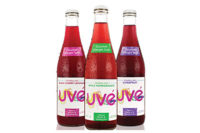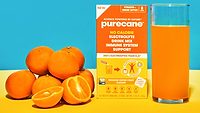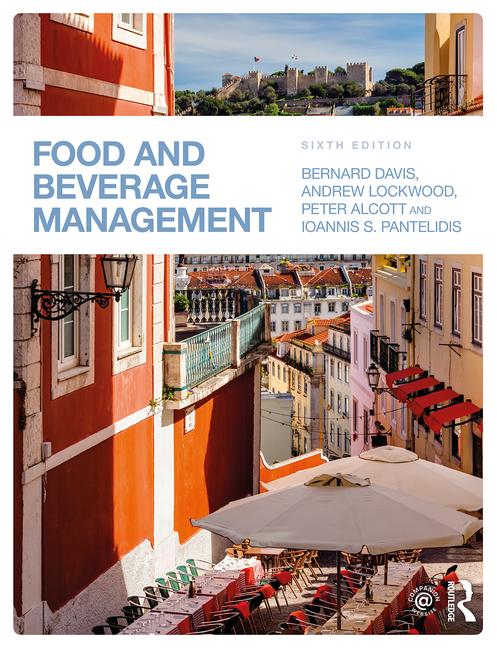R&D Feature
Weight-management motivated by health, not cosmetics

The start of the new year often will prompt consumers to add “take control of my weight” to their list of resolutions. However, the conditions brought on by the current pandemic are adding a completely new layer to this lifestyle trend.
“Consumer interest in weight management in the U.S. has increased by 112 percent since 2019, according to Spoonshot’s proprietary data,” says Kishan Vasani, co-founder and chief executive officer of Spoonshot, St. Paul, Minn. “In addition, around one in three product launches (30 percent) carry a claim linked to weight loss, based on our data.
“A recent driver for weight-management requirements is likely to be the impact of COVID-19 and the resultant lockdowns, which kept people indoors and significantly reduced activity levels,” he continues. “With limited options for distractions, consumers stuck at home took to cooking, baking and comfort food. In fact, consumer interest in comfort food went up by 21 percent between January and June 2020 and by 69 percent in the 12 months to June 2020.”
Citing a 2019 consumer survey conducted by Wizer on behalf of BENEO, Kyle Krause, product manager of functional fiber and carbohydrates for North America for BENEO, notes that one out of two consumers in the United States is concerned about maintaining or losing weight. The pandemic has exacerbated this concern, he adds.
“The COVID-19 crisis has clearly influenced consumer behavior. Consumers are increasingly aware of their dietary choices having a major impact on their metabolism and weight, thus influencing their overall health. Latest figures show that eight in 10 consumers want to eat healthier as a consequence of the pandemic,” he says, citing 2020 FMCG Gurus.
Even before the arrival of the SARS-CoV-2 coronavirus, Krause notes that effects from being overweight or obese have caused weight management to evolve beyond cosmetics to a health crisis.
“By not paying attention to weight management, consumers may see increases in several types of illnesses over the long term,” he says. “Simply put, weight management is not just for vanity purposes, but is critical to inner well-being.”
A healthy understanding
When formulating weight-management products, experts highlight the importance of understanding what the consumer market wants.
“Consumer preferences and consumption habits are evolving,” say David Nichols, category strategy manager of beverage and bakery NOAM for Tate & Lyle; and Marcia Petit, technical manager of beverage NOAM for Tate & Lyle, Hoffman Estates, Ill. “Within the beverage industry, retail volume sales are shifting from products that are high in sugar and calories to products that are lower in sugar and calories. According to Nielsen, the three-year CAGR for ‘sugar-free’ and ‘less sugar’ beverages is 11 percent and 9 percent, respectively. This segment of the beverage industry is significantly outpacing the rest of the market.”
Noting that a balance between taste and health is important for successful new product development, Nichols and Petit explain that weight management is at the core of consumers’ definition of healthfulness.
“In fact, in a recent Tate & Lyle proprietary consumer research study, consumers were asked to describe what health and wellness means to them, and the idea of ‘maintaining healthy weight’ was the leading answer among U.S. consumers,” they say.
Examining weight management on a more granular level, experts note that women are the most likely to engage with this product attribute.
“Women are definitely more inclined to take action with respect to weight management,” says Marianne McDonagh, vice president of sales for Bioenergy Life Science Inc. (BLS), Ham Lake, Minn. “While 73 percent of men in the United States are overweight, compared with only 63 percent of women, weight-loss program memberships are dominated by women. For example, an estimated 90 percent of Weight Watchers members are women. Commercial weight-loss supplementation expenditure is skewed heavily toward women, and household expenditure is 70-80 percent female.”
With weight management products in such demand, the consumer packaged goods market, particularly beverages, has shown itself to be an ideal delivery outlet. .“Based on Spoonshot data, beverages were the fourth largest category in terms of products carrying claims related to weight management,” Spoonshot’s Vasani says. “In general, beverages are a great medium to incorporate weight-management features since they easily fit into consumer lifestyles — across multiple functional needs and consumption occasions.
“Formulating with new ingredients is actually easier in the beverages category, since these additions don’t often impact texture as much as they do in food,” he continues. “So, this allows formulators to focus more on getting the taste right for the product. The beverages category has a wide range of options to choose from in terms of base liquid — from tea or juice to functional water.”
Sweet and functional
To support beverages with weight-management attributes, experts suggest that formulators employ a mixture of functional ingredients as well as low- and no-calorie sweeteners.
“High-intensity sweeteners, fiber, natural flavors, natural sweeteners and rare sugars can be used in formulations to reduce calories, reduce sugar and improve mouthfeel in weight-management formulations,” Tate & Lyle’s Nichols and Petit say. “The addition of fiber would also add a nutritional benefit and can help support a healthy digestive system.”
Michael Crabtree, director of scientific affairs for BLS, notes that ingredients that support a healthy metabolism are ideal for weight-management beverages.
“Beverage formulations should include ingredients that support an overall healthier metabolism, such as d-ribose, amino acids, creatine and electrolytes, as well as vasodilators, which may improve blood vessel function negatively impacted by excessive weight,” he says.
To support weight management, BLS offers Bioenergy Ribose, a five-carbon sugar.
“Bioenergy Ribose is a suitable ingredient to include in weight-management beverage formulas because it promotes a healthy metabolism, enabling consumers to lose weight naturally,” Crabtree explains. “It also provides consumers with increased energy, which is especially important during periods of reduced calorie intake.”
BENEO’s Krause believes specific ingredients are crucial to support a healthy lifestyle in a sustainable way.
“This is why our ingredients for weight management are quality carbohydrates that help to reduce the blood glucose response of food and drink products,” he says. “Controlled, balanced and low blood glucose levels are key for maintaining or losing weight effectively.”
One of the solutions that BENEO offers to support this lifestyle is Palatinose, an isomaltulose that is slowly released upon consumption.
“A recent human intervention study showed that using Palatinose instead of sucrose supports weight loss and the reduction of body fat in overweight and obese people, because it steers the metabolism towards fat burning,” he says, citing a 2019 randomized controlled trial authored by Helen Lightowler, Lisa Schweitzer, Stephan Theis and Christiani Jeyakumar Henry.
Tate & Lyle’s Nichols and Petit also highlight the company’s vast portfolio of sweetener solutions to support weight-management attributes.
“One can leverage our high-intensity sweetener portfolio, which includes our full range of stevia sweeteners, monk fruit extract and sucralose,” they say. “We also offer allulose, a rare sugar with a temporal profile similar to sucrose. To improve mouthfeel and body in beverage formulations, one can leverage our soluble corn fiber and texturants. Ingredients such a stevia, monk fruit and allulose can be used as natural flavor.”
Outside of fiber and sweeteners, Spoonshot’s Vasani also has identified a diverse sect of ingredients that align with weight management.
“L-theanine [is] an amino acid naturally found in tea leaves, with the highest concentration in green tea,” he says. “It is known to be an effective ingredient to speed up fat loss. Chlorogenic acid from green coffee beans could help reduce body mass and body fat. Some studies indicate that black coffee could contribute to fat loss by increasing metabolism and the release of body fat for use as energy.
“Garcinia cambogia is said to block the body’s ability to make fat and it also suppresses appetite,” he continues. “Conjugated linoleic acid or CLA is a fatty acid that has the ability to preserve lean body mass while reducing body fat.”
In addition to these, Vasani also identifies raspberry ketone and glucomannan, a fiber made from konjac root, as formulation options.
As weight-management beverages evolve, Vasani expects that personalization will play a bigger role in the next two to three years.
“Consumers are increasingly understanding that a one-size-fits-all solution may not be the best model in this category,” he says. “As such, over the next few years, we expect to see a lot more acceptance of personalized dieting options, including beverage launches tailored to specific weight-management needs by consumers. This could include products tailored to needs such as fat burning, increasing metabolism, or even based on premium requirements, like a person’s DNA.”
Looking for a reprint of this article?
From high-res PDFs to custom plaques, order your copy today!







